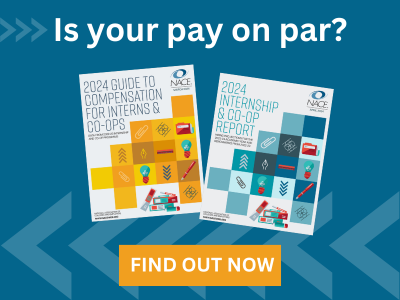Over the summer, NACE conducted a Quick Poll to learn about fall recruiting plans, and the findings seemed to indicate that most activities would mostly return to in-person. Employers expected to spend about 70% of their time recruiting in person and 80% of career centers were planning for in-person career fairs. However, even with a return to in-person events, both employers and colleges still had to adjust their standard procedures because of the ongoing risk posed by the pandemic.
With that in mind and as the fall recruitment season begins to close, many NACE members recently shared their fall experiences in the NACE Community and offered ideas and insights based on what did and did not work.
“This year, we experimented with changing ‘Career Fair’ to ‘Job and Internship Fair’ based on student feedback that they weren't sure what happens at a career fair. ‘Career Fair’ sounds like it could be a place to learn about different career paths, not necessarily for active recruiting. I think the new naming convention was a positive change,” said Jonna McHugh, assistant director, engineering career center at University of Illinois at Chicago-College of Engineering.
Rose McGinnis, director of professional development-CIS department at Temple University explained that based on employer feedback, both students and employers adopted a color-coded system based on student major and employer field.
“Our fair is for the College of Science & Technology, so half of our students are tech and the other half science. The same is true for employers. To make the student/employer engagement go well, we make name tags for all the students when they register and then we have them put a small dot sticker on their name tag, red for ‘tech’ and yellow for ‘science,’” McGinnis said. “We also identify the employers as red or yellow or both on the handout sheets to students.”
From the perspective of employers, Nicole Ramirez, manager, early talent at Conagra Brand, noted that schools that differentiate organizations based on their talent needs can be helpful for both employers and students.
“As an employer, we always really appreciate the schools that take the time to print signs to hang up at the top of the backdrop behind our tables that designate if we're hiring for full-time, interns, and if we will sponsor foreign national students. It helps the students not waste time in a line and helps eliminate a lot of ‘sorry’ conversations from our end,” Ramirez said.
The NACE Community is an exclusive benefit offered only to NACE members. To learn more, click here.



